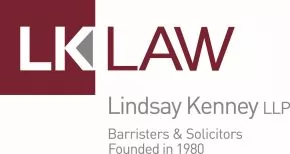In the first of a series, senior partner Greg Miller leads you through the introductory questions around contract law through the lens of architects and engineers.
Greg Miller, Construction Litigation
Partner,
Dispute Resolution
Lindsay Kenney – Vancouver
Full Transcript:
I'm often asks by clients, "Do I have an enforceable contract?" Usually that's a prelude to some discussion of a dispute, where the client wants to know, what are the rights and obligations of each party? How are the disputes to be resolved? The answer depends on the exact circumstances, but the analysis is always the same. A contact is an agreement among two or more persons that is enforceable at law. It comes into existence when all of the elements necessary to make it enforceable at law are in place.
What are those elements? Was there an intention to create a legal relationship? An agreement for a commercial purpose is presumed to be legally enforceable. Some agreements, though, are gratuitous. For example, "I'll meet you at 2pm for coffee."
Next, was there a clear offer? An offer is a tentative promise to do something in return for something else. For example, I will provide you with certain services, if you will pay a certain amount for those services. The offer can be oral, or it can be in writing. Engineers and architects often make offers in the form of proposals. Note that all of the needed terms should be included in the offer. For example, what services are you going to provide? How much are you going to be paid? When are you going to be paid? What if payment is late or not made at all?
How is acceptance of your offer to be made? That is, in a certain form, for example a signed proposal letter, or some other. Is acceptance to be made by a certain time. The key is sufficient clarity for the offeree to understand what is being proposed. Next, was there clear acceptance? Was it communicated in the manner specified? Was it communicated before the offer expired or was revoked? Was it unconditional or was it a counteroffer? Can it be said that there has been a true meeting of the minds?
Next, was there consideration? Contacts are bargains. Something given for something in return. Note that an agreement under seal may not require consideration.
Next, did both parties have the legal capacity to enter into the contract? Did they both have the mental capacity to understand what was being agreed? Children, for example, may have restricted ability to contract. Some corporations may also have restricted ability to contract.
Was the agreement for a legal purpose? An agreement to commit a crime or some other wrong doing is not enforceable. If all of the elements are in place, you have an agreement that is enforceable at law, you have a contract.
Now most contracts are simple contracts, they need not be in writing. The law is concerned with the intention of the parties. The writing is evidence of the intention. Very important if there's a dispute.
Standard form contracts for architects and engineers are helpful. They remind the parties of issues to be agreed upon. They typically provide mechanisms for dispute resolution. And they've usually been interpreted by the courts, so we know what they mean.
About Mackrell International – Canada - Lindsay Kenney LLP is a full service business law firm with offices in Vancouver and Langley, BC and a member of Mackrell International. Mackrell International – Canada is comprised of four independent law firms in Alberta, British Columbia, Ontario and Quebec. Each firm is regionally based and well-connected in our communities, an advantage shared with our clients. With close relations amongst our Canadian member firms, we are committed to working with clients who have legal needs in multiple jurisdictions within Canada.
This article is intended to be an overview and is for informational purposes only.

